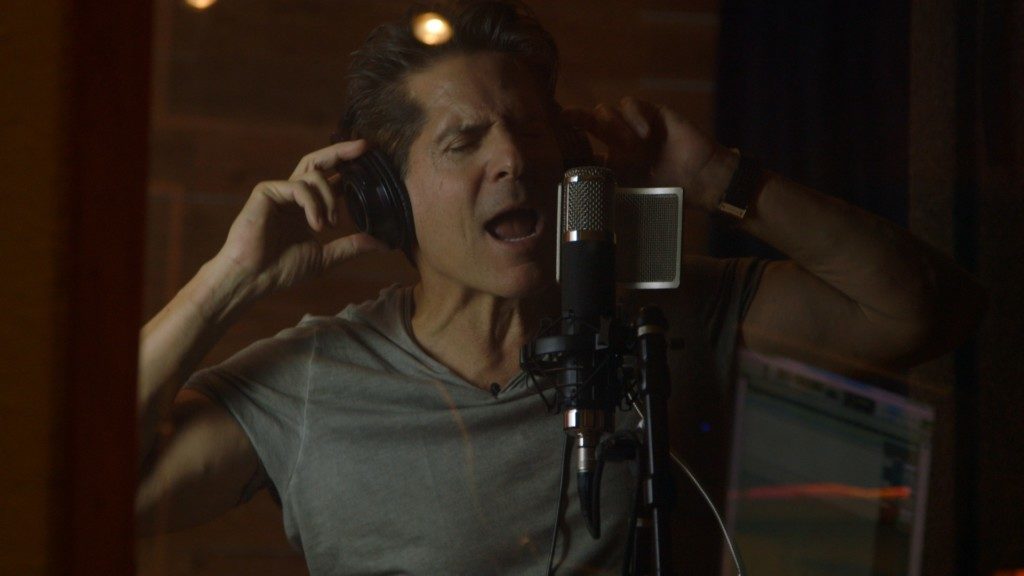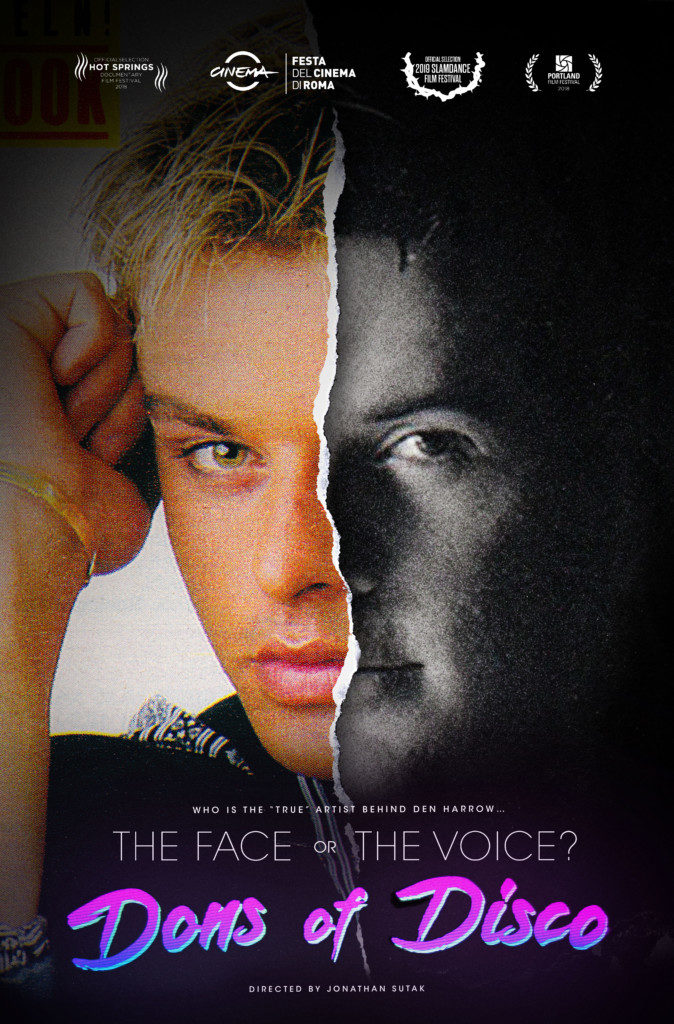Some of the music industry’s most intriguing controversies have revolved around the lip-synched performances of singers. In 1991, Whitney Houston lip-synched the actual performance of the national anthem at Super Bowl XXV but the prerecorded version that millions heard that day became a top 10 Billboard single. The group Muse was instructed to lip sync its performance of Uprising for an Italian-based variety television show so band members decided to switch their instruments – a presentation that brought laughs from the studio audience but the Italian press made it in a scandalous story. In 2004, singer Ashlee Simpson tried to ad lib her way on a Saturday Night Live performance when she was caught lip synching and the hilarious result was widely parodied – especially as she danced awkwardly.
Of course, one of the most infamous instances involved the dance pop duo Milli Vanilli, long suspected of being lip synching performers, when the two singers were exposed during a Club MTV performance when the sound track skipped and they abruptly left in the middle of the performance. The scandal led to the duo’s Grammy Award being revoked and millions in album and ticket revenue refunded.

Making its Utah premiere at the Slamdance film festival in Park City is Dons of Disco, a first-class music documentary about a lip synching scandal in which director Jonathan Sutak offers one of the most absorbing discussions about the ethics and the intersection of cultural and commercial implications for performers who lip synch and audiences who follow the music.
Sutak focuses on the case of Den Harrow, a striking, handsome performer who was among the most successful singers of the Italo Disco period during the 1980s. Harrow had been passed off as the classic blond American sex symbol but, in fact, he was Italian-born Stefano Zandri, whose English at that time barely qualified as approaching any acceptable level of efficiency. Sutak had come across, by accident, a YouTube video labeled, as ‘Tom Hooker responds to Den Harrow’s threats.’ Hooker, more widely known as American photographer Thomas Barbèy, was accompanied by Miki Chieregato, the original Den Harrow producer Miki Chieregato. The two made it clear that Barbèy a/k/a Hooker was the real singer for all the Den Harrow recordings of 30 years earlier.

Sutak’s film is worth the attention of American audiences, an overwhelming number who barely are aware of the Italo Disco phenomenon or Den Harrow, who was hugely popular in Italy as well as elsewhere in Europe throughout the 1980s. There even remains a fervent fan club in Germany, a point illustrated in Sutak’s film.
One might naturally chuckle at the utter cheesiness of this particular music genre, which Pitchfork contributor Andy Beta in 2015, described as the “oft-maligned bastard child of Giorgio Moroder, Cerrone, and Patrick Cowley, a Mediterranean mélange of disco, new wave, hi-NRG, and ESL-pop.” Yet, today some of that music is being sampled and resurrected in new mixes by a new generation of European DJs and producers who look continuously for new brushstrokes in the electronic and dance music genre.
However, the film effectively supersedes the trivialities and novelties of Italo Disco (offering some of the most humorous moments) and becomes a substantial, undeniably compelling portrait of two artists in a rivalry and the spectrum of good intentions and claims of artistic legitimacy as well as the concerns and problems of deception and ego. Sutak weaves archival footage of videos featuring hit songs such as Future Brain and Don’t Break My Heart and performances through the interviews and words of both men as well as those who were responsible for their careers. It is an exquisitely balanced portrait, considering that many viewers at the beginning may already have decided which side to believe and support. But, in allowing the voices of both men to have equal time and volume in the film, Sutak achieves an enriched, complex well-considered result that encompasses how two men, now much older and wiser even as it means accepting the residue of self-deception, perhaps have come to terms with the whole controversy and scandal.
In an interview with The Utah Review, Sutak says that “there’s an element as an American doing the documentary that one does not have the emotional connection or the level of fandom that others would have” in making this film. Growing up, he had listened to hip hop and then had been drawn to his father’s extensive music collection which including film soundtracks by many famous composers as well as those not so famous, including those scored for Italian films. “I always had eclectic tastes,” he adds. When he was a teenager, he was looking for music to sample, one of which turned out to be the 1980s song Bad Boy that was performed by Den Harrow. Some 15 years later after finishing a short documentary, he was perusing YouTube archives when he discovered the press conference clip that inspired the idea for Dons of Disco.

As for securing both men’s agreement to participate in the filming, Sutak says it “was a lot easier for Tom,” as he was motivated to let the public know how he had contributed to the success of one of Europe’s most popular pop stars during the 1980s. Zandri agreed but Sutak emphasized the conscientious efforts of transparency, especially for those, depending on which side they might have been on, who see their “mortal enemy” being given time to make their case. Indeed, Zandri’s personal life and circumstances post-Den Harrow have been less successful and heartening than Barbèy’s life. Barbèy even did an ersatz parody that is funny but not in the way that he might have anticipated it.
The result is an appropriately complex film about complex beings and the imposing presence and tensions of marketing and packaging in pop culture. Sutak says that how audiences respond is due in part to its screening venue and location. For many Americans who have never heard of Den Harrow, they may be as sympathetic to Zandri as they are to Barbèy. Some Italian audience members were surprised to find out that Den Harrow, in fact, was not the American personality his producers had promoted him to be when he was at the height of his career.
This is Sutak’s debut feature-length work. His short documentary, The Foreigner, won Best Short Documentary at the 2015 Las Vegas Film Festival. Prior to Slamdance, the film screened at the Rome Film Festival, Hot Springs Documentary Film Festival and Portland Film Festival. It will screen next month at the Big Sky Documentary Film Festival.
The film will screen Jan. 27 at 8 p.m. and Jan. 31 at 3:30 p.m. at the Treasure Mountain Inn in Park City. For ticket information, see the Slamdance web page.

